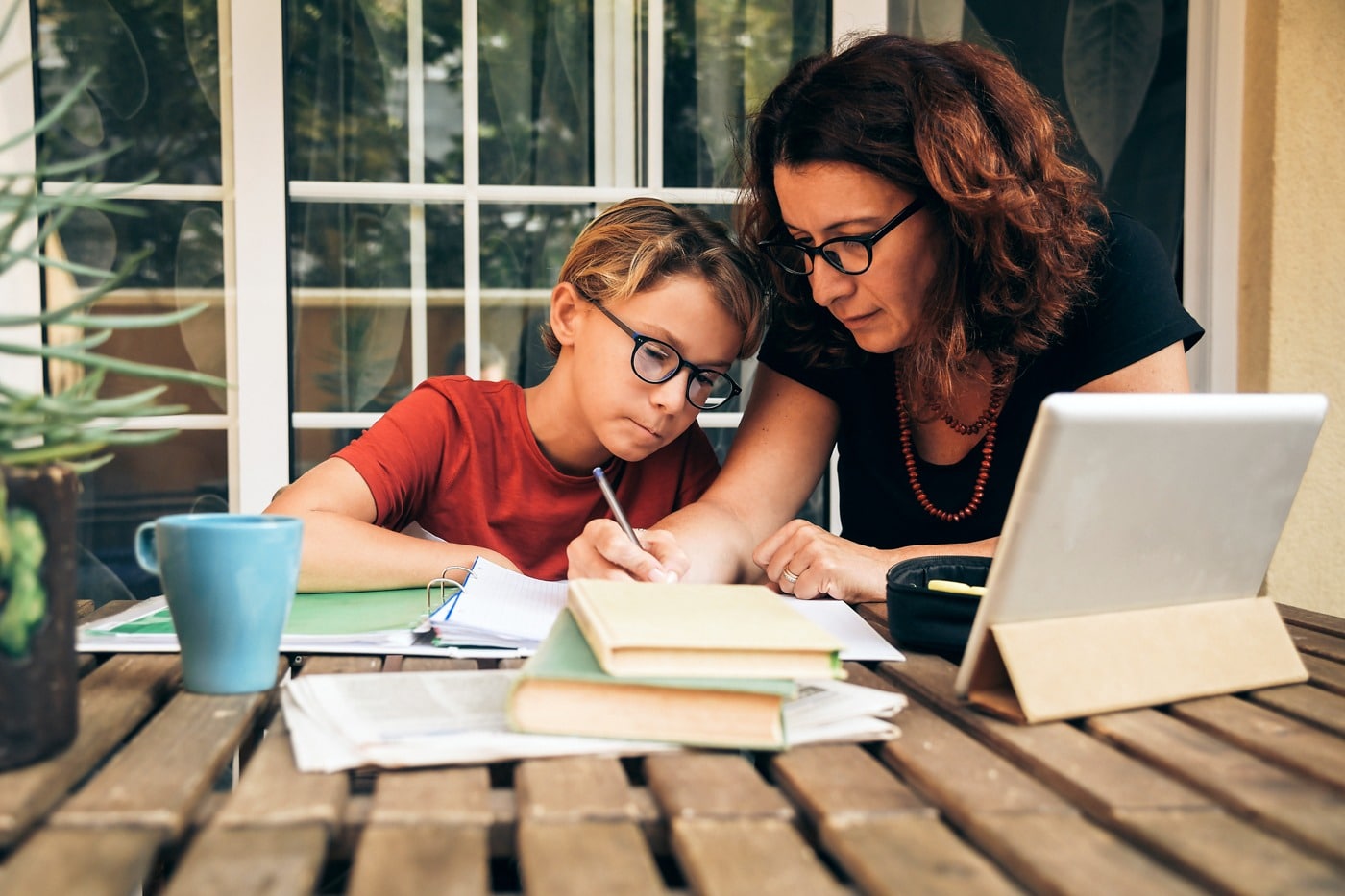Whether your student is back at their school full-time, distance-learning, or some combination of the two, these unforeseen changes likely have you navigating uncharted waters. Groves faculty and staff experts share their advice, tips, and wisdom to help calm those waves until we reach a new normal.
Though geared toward families whose children experience learning disabilities, these ideas can help all types of learners, those with learning challenges or not.
Supporting Your Student in School
Homework and routines
- Develop and maintain consistent routines around homework. Assist your student in finding a homework routine that works for them.
- Go over your student’s planners, online projects, and scheduled activities together as part of a consistent daily check-in.
- Prepare your student for their day or their next task. Ask them to picture themselves doing it. Talk about the plan, prepare them for their plan, visualize it, create some scenarios.
- Have your student ask you about your plan for the day, so they see how you model your daily prework.
- Be a facilitator or “counselor” for homework help, but do not complete the work for them. If they are frustrated by their homework or if your student finds it challenging to complete homework, reach out to their teacher. They should be able to monitor and adjust it with your communication.
Be open to change
- Make creativity a practice. Try letting your student lead you in a creative activity, or ask open-ended questions about something they made.
- Model and encourage taking healthy risks, problem-solving, and celebrating new skills.
- Model a willingness to learn and a growth mindset in all situations.
- Normalize conversations about learning differences.
- Talk with your student about strengths and challenges. Help them identify opportunities to practice their self-advocacy skills.
Supporting Your Student’s Social and Emotional Wellbeing
Always celebrate who your student is now
- Don’t compare them to other siblings or friends.
- Acknowledge that every person has a unique learning style.
- Explain to them that the way they “learn to learn” during this time can help to develop their own relationship with learning and become empowered young adults.
- Keep asking how they are doing. Communicate concerns with their teachers.
Check-in with them
- Have real, honest, uncomfortable conversations.
- Share your own thoughts and feelings for modeling purposes.
- Capitalize on your time with them in the car.
- Normalize stress and difficulties and support your student’s ability to address and solve their concerns more fully.
- Monitor screen time.
Interaction is vital
- Encourage or host game nights with friends or dance parties —things the kids can do individually but still feel part of the group. Use your school parent directory to connect with other families.
Supporting Your Student’s Progress Over the Summer
- Read, read, and more reading!!!
- Encourage them to read in different ways (reading alone, on Learning Ally, with an adult, etc.)
- Consider Groves Summer Programs. Think about having your student attend a Groves Study and Executive Function program for students in Grades 6-9 and Grades 9-11 (July 12 – Aug 6). Also, provide space for exploring non-academic confidence-building opportunities.
- Outside, outside, outside! Try new things, get bikes, kayaks, roller blades, tennis rackets. Have them spend safe-distance time with friends being active and then have a lemonade gathering (something where they can talk to friends). Try to do 3 to 4 family outdoor activities. We’ve all spent so much time inside; our bodies all need sunshine and movement and camaraderie!
- Move their body and use their brain. Kids are much more apt to make this a part of their life if they see their parents prioritizing it.
- Encourage them to participate in activities they can put on their resume: volunteer, a job, internship, job shadow, etc.
- PLAY. After a year of distance learning, give your student space away from screens and technology.
- SOCIALIZE (in ways that are safe to do so). Re-engage with how it feels to be a child or young adult. Always seek to help your student practice academic skills in ways that are enjoyable, social, or away from screens.
Additional Thoughts
- Listen to teachers and staff when they share your child’s individual learning strengths and challenges.
- It may not always be what you want to hear, but you need to hear/listen and understand.
- Honor who your student is rather than who you thought they would be.
- In everything you do, help your student to feel supported, gain confidence, and learn skills needed for the future.
- We will likely look back at this time in our lives with mixed emotions. The past year has been challenging at times. Do your best to concentrate on the opportunity to spend concentrated amounts of time with family.
Keep loving your kids well!

